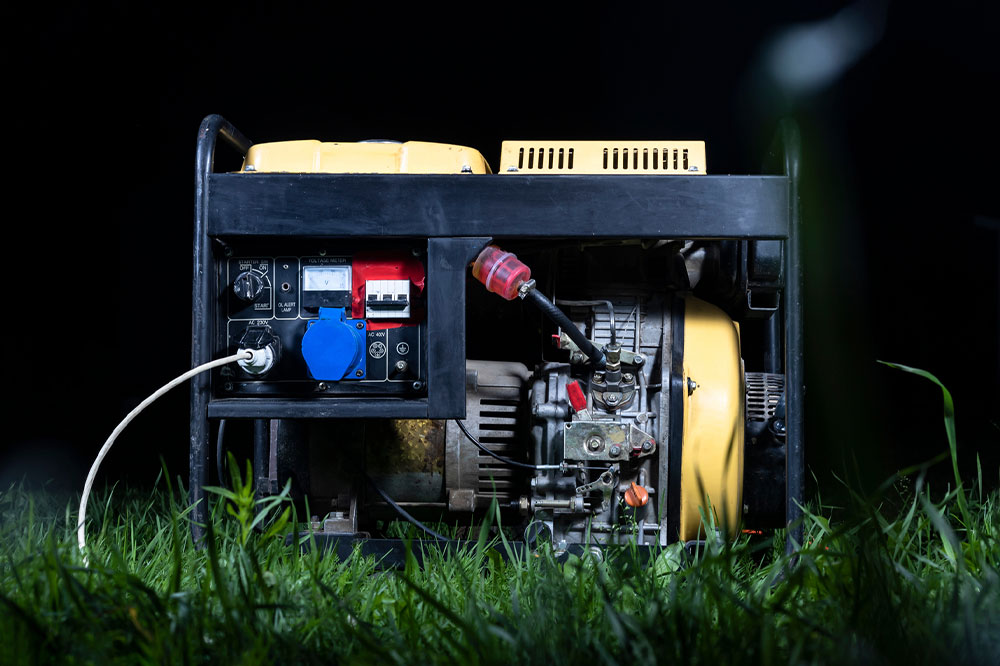A Brief Overview of Home Generators
A generator provides power to appliances and devices when systems are disconnected from the grid. They are a crucial safety equipment when there are power outages or natural calamities like hurricanes and snowstorms. A home power generator keeps the lights, vital appliances, and essential health-related machines on during a power cut. It can minimize inconvenience and prevent accidents if you are living in an area with frequent power outages.
Whole house generators
A whole house generator or backup generator keeps the home systems and appliances powered whenever disconnected from the main grid.

Portable generator
A portable generator is a machine that runs on diesel or gasoline and provides electrical power to small appliances in the home such as a computer, refrigerator, and TV. The engine rotates a small turbine, generating usable electricity up to a certain power level. Users can plug appliances or power tools directly into the generator outlet, or the portable generator for house power can be professionally wired into the home’s sub-panel.
Inverter generator
An inverter generator is a device that inverts electricity and supplies clean and safe power to sensitive electronic devices. It’s more compact, quieter, and energy-efficient than traditional generators, but it’s usually more expensive. It works by converting AC power to DC power and then reconverting it to AC power to create cleaner power waves. You can adjust the RPM of the engine according to the amount of power you need to provide. These machines cannot fully power homes or large appliances but they can be used for small appliances in the case of an emergency.
How does a gas generator work?
A diesel-powered home backup generator uses a combustion engine, which means it consumes diesel. Sometimes, a gas generator uses gas or liquid propane as a fuel source. By way of combustion, the engine converts to electricity, which provides light into the house.
This is especially useful in electrical emergencies during the loss of power. Depending on the size of the home power generator and how it’s wired, it might be able to power the entire house during a power outage. Smaller gas generators concentrate on powering necessities like lighting, HVAC systems, refrigerators, and security systems. Some configurations do not require flipping the generator on when the power goes out; it just automatically kicks on. The only worry is keeping the fuel tank full and the system maintained. These engines ignite fuel by heating it above its auto-ignition temperature.
Are home generators loud?
The noise will depend on the size of the generator. In most cases, they do make some amount of noise despite being top-of-the-line models. Portable generators for houses tend to have lesser power and make less noise. However, if your generator is really loud, it may be time for repair and replacement. If you have children or elderly individuals at home, you can consider using a sound-absorbing enclosure, acoustic barriers, and isolation mounts.
How long does a generator take to start?
How long it takes for a generator to start working depends on the setup and generator model. A closer look, specifically at a Cummins generator, shows that the generator does not start up immediately because of a built-in security feature. The machine will wait a few minutes to ensure it doesn’t detect a brief outage. The engine will heat up from there, and when the throttle is full, it will eventually generate power. The whole thing only takes a few minutes.
While backup generators are useful during power outages, natural disasters, or when used to supply the electricity in remote locations, they must also be handled properly to avoid injury or damage. Things to keep in mind are:
Buy a generator that is the right size for the home
Keep the generator away from water
Always use the correct extension cord
Never operate a generator in an enclosed space as it produces carbon monoxide, which is extremely harmful if inhaled
Some fuels can pose a safety hazard when stored, and emissions from generators can be toxic
The generator must be EPA-compliant in the designated area
Conclusion
To find the best portable home generator, start by identifying the main purpose of the generator. Consider the frequency and duration of your anticipated power outages when choosing the correct size generator for your home. Of course, that’s somewhat unpredictable, but it’s crucial to ensure to operate even the best permanently-installed or portable generators at least 20 feet away from your home and any windows, doors, or air conditioning systems.




